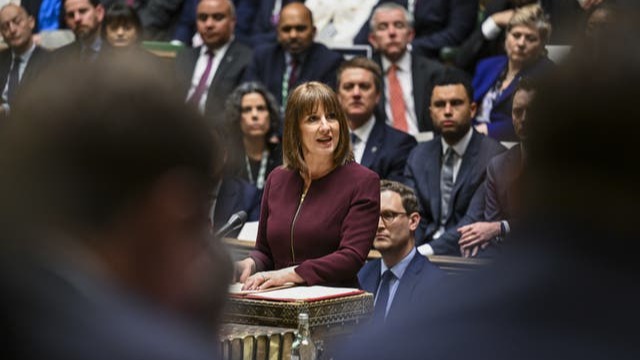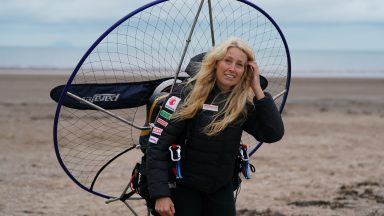More than 3,000 online grooming crimes have been recorded by Police Scotland over the past five years, according to new data compiled by the NSPCC.
The figures published by the Scottish Government show 3,158 “communicating indecently with a child” offences have been recorded since 2020.
The NSPCC said the data it had obtained from police forces across the UK showed an almost doubling of online grooming crimes in the past eight years.
A new offence of sexual communication with a child was introduced in England and Wales in April 2017 to tackle groomers who target under-16s through mobile phones and social media.
The offence has been recorded in Northern Ireland since 2015, while a similar offence was introduced in Scotland in 2010.
NSPCC chief executive Chris Sherwood said: “It’s deeply alarming that online grooming crimes have reached a record high across the UK, taking place on the very platforms children use every day.
“At Childline, we hear first-hand how grooming can devastate young lives. The trauma doesn’t end when the messages stop, it can leave children battling anxiety, depression and shame for years.”
Data obtained by the NSPCC from police forces across the UK showed 7,263 online grooming offences were recorded in the year to March – almost double the 3,728 recorded in the year to March 2018.
The NSPCC, which sent freedom of information requests, said it received data from all forces except Lincolnshire.
In 2,111 of the recorded offences in the past year, a tech platform was identified.
Around 40% of those offences took place on messaging app Snapchat, while 9% happened on WhatsApp and 9% on Facebook and Instagram, the NSPCC said.
While girls made up 80% of victims in cases where the gender was known in the past year, the youngest victim in that period was a four-year-old boy, the charity said.
Asked about the possible reason for the high proportion of offences happening on Snapchat, the charity’s associate head of child safety online said almost three-quarters of British children use the platform and pointed out the ease with which users can add each other.
Raising the issue of being able to easily send direct messages, Matthew Sowemimo said: “There’s a ‘quick add’ that allows adults to really reach out to a very large number of child users.”
The NSPCC said it had done new research which identifies cycles of behaviours among perpetrators, including creating multiple different profiles and manipulating young users to engage with them across different platforms.
They called on tech firms to analyse the metadata they have access to, to spot suspicious patterns of behaviour.
The charity said this would not involve reading private messages, but could flag where adults repeatedly contact large numbers of children or create fake profiles – strong indicators of grooming.
They also suggested restrictions should be brought in on adult profiles, limiting who they can search and how many people they can contact.
The charity has also recommended implementing tools on a child’s phone to scan for nude images and identify child sexual abuse material before it is shared.
Kerry Smith, chief executive of the Internet Watch Foundation (IWF), said. “Tech companies must do everything they can, including in end-to-end encrypted spaces, to keep children safe. It is clear now that this can be done effectively without compromising users’ privacy.
“There really is no excuse, and the alternative is allowing children to continue to suffer.”
Assistant chief constable Becky Riggs, the National Police Chiefs’ Council lead for child protection and abuse investigations, said while police forces are “working tirelessly to investigate these crimes, safeguard victims and bring offenders to justice”, policing alone “cannot stem the tide of online abuse”.
She added: “We need technology companies to take responsibility for the safety of children on their platforms.
“Children’s safety must be embedded into platform design – not treated as an afterthought. We urge tech companies to act swiftly and decisively, working in partnership with policing and child protection experts to ensure online spaces are safe for all users.”
Snapchat and Meta, which owns Instagram, Facebook and WhatsApp, have been contacted for comment.
Follow STV News on WhatsApp
Scan the QR code on your mobile device for all the latest news from around the country


 Adobe Stock
Adobe Stock























